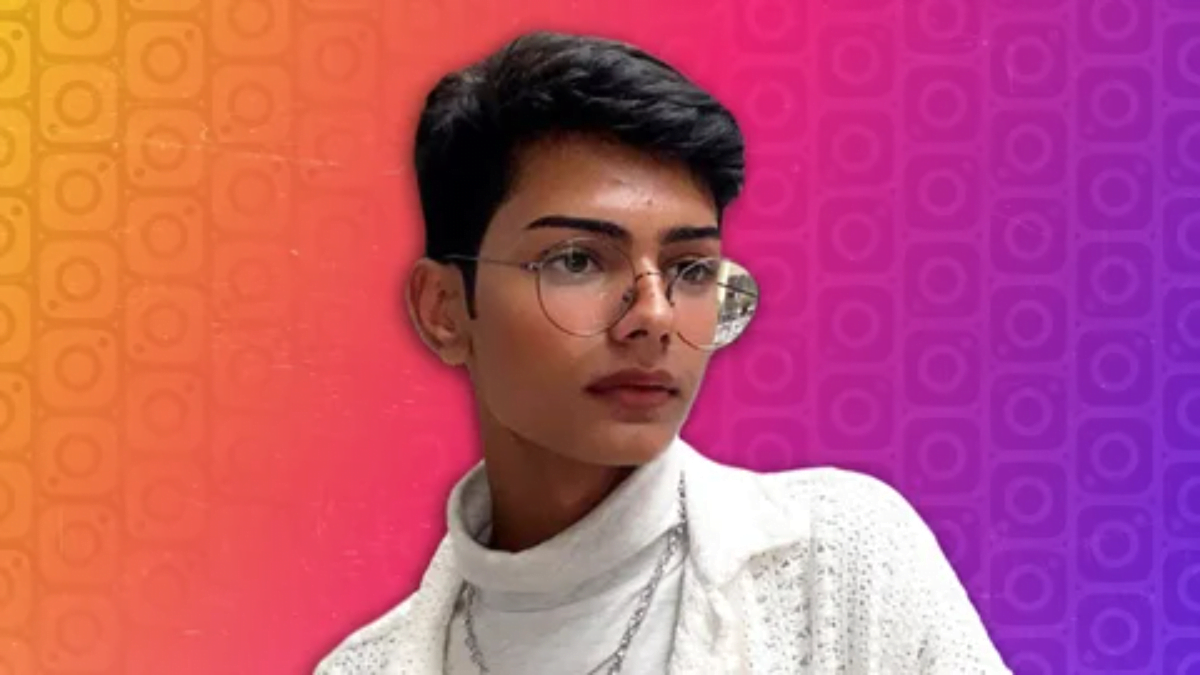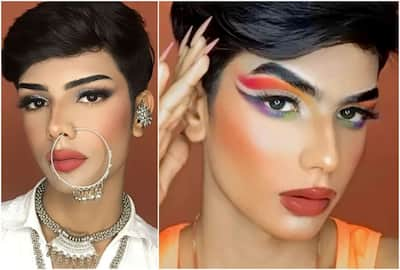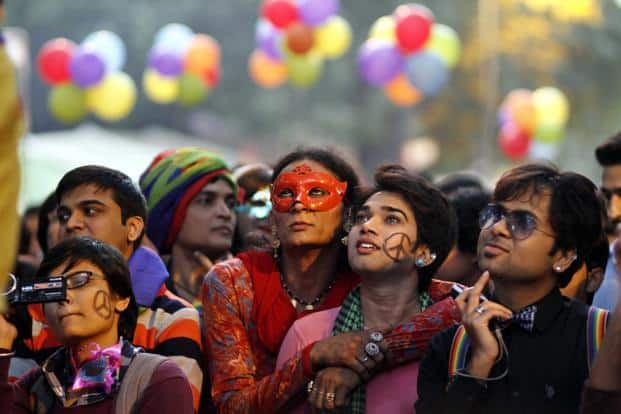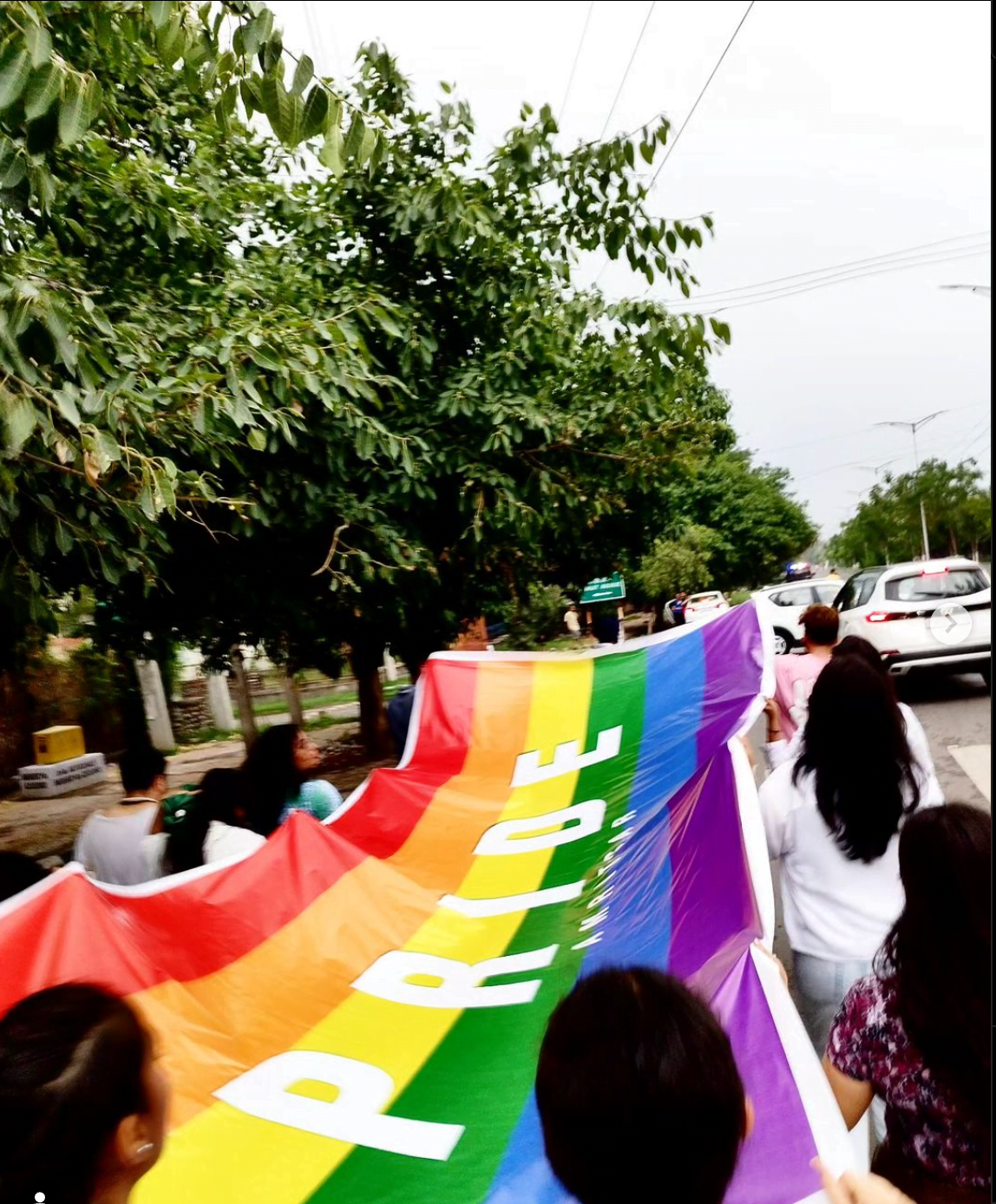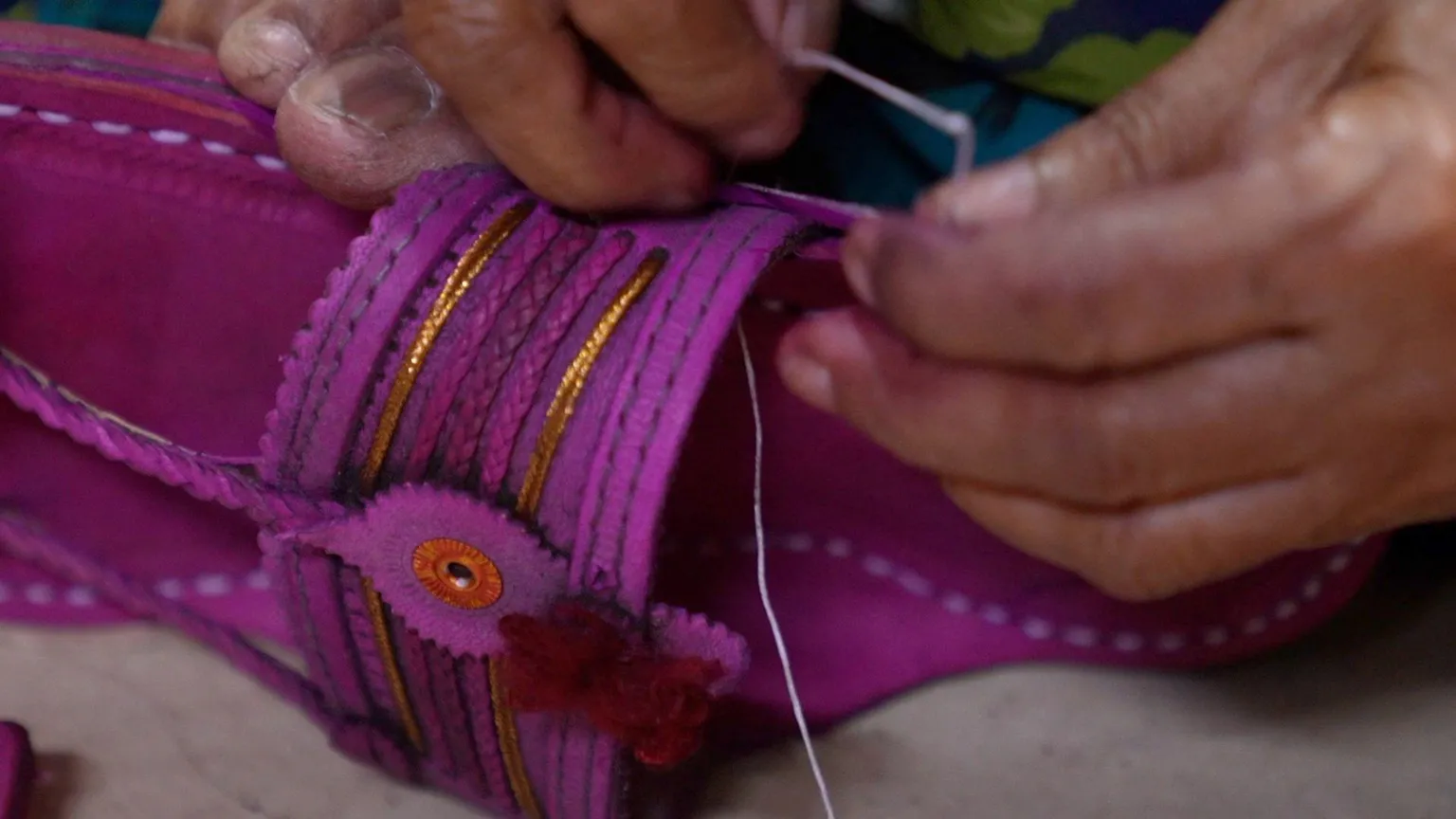Trigger Warning: Mentions of queer phobia and suicide
On Tuesday, November 21, Pranshu Yadav, a 16-year-old self-taught queer makeup content creator, tragically died by suicide. Pranshu, a 10th-grade student at Ujjain Public School in Madhya Pradesh, had been actively sharing makeup-related posts and reels on Instagram since the onset of the COVID-19 pandemic. A lot has been written about their suicide, their reasons for it, and how people from the queer community are mourning. But one must ask themselves at this point, why are we still here?
Earlier this year, Arvey Malhotra, a student of Delhi Public School died in the same manner after being bullied and assaulted in school. These are the names that made the headlines, hence we know them. But there are countless others, living in remote areas, grappling with the confusing and exhausting life a queer teen has to deal with, without having any tools or guidance to deal with it? It is high time we must question the issues that these young, queer kids are dealing with on the internet, and what we can do about it.
Is this new or have queer kids always been at risk?
Historically, research has suggested that LGBTQ+ youth may be at a higher risk of suicidal thoughts and attempts compared to their heterosexual peers. Factors such as discrimination, bullying, social stigma, and lack of support can contribute to mental health challenges in this population. Experiences of bullying, discrimination, and rejection based on sexual orientation or gender identity can significantly contribute to mental health challenges among LGBTQ+ youth. Lack of family support or acceptance, especially after coming out, can be a contributing factor to mental health struggles in queer youth.
Moreover, LGBTQ+ individuals may face disparities in accessing mental health support, either due to a lack of understanding from healthcare providers or concerns about confidentiality and discrimination. The experiences of queer youth can be further influenced by factors such as race, ethnicity, socioeconomic status, and more, leading to unique challenges and variations in mental health outcomes.
Queerness in India encompasses a complex and diverse landscape, shaped by cultural, social, and legal factors. Homosexuality was decriminalised in India in 2018 when the Supreme Court struck down Section 377 of the Indian Penal Code, which criminalised consensual same-sex relations. Despite legal changes, discrimination, stigma, and violence against LGBTQ+ individuals still occur. Employment discrimination and lack of access to healthcare are among the challenges faced by the community. One can fight the legal and social battle, and the queer community most definitely is. But, how does one fight persons sitting behind an anonymous computers or mobile screens, devoting their useless time to do nothing but terrorise an innocent child? Are these queer youngsters doing something that countless other cisgender and heterosexual people are not doing on these social media platforms? The answer, of course, reaffirms that queer teens are making the same kind of makeup comment that several heterosexual influences are lauded for. Then why are they being targeted by online trolls?
Young queer folx and their so-called “heinous” content
This is not an isolated incident. This is not the first time a teenager has been forced to die by suicide. But one really must ask if it is at all the kid’s fault. In Pranshu’s case, all it took was a post where they wore a saree. Pranshu’s gorgeous makeup, their beautiful saree and their jewellery, things they must have spent hours acquiring and learning to use and accessorise, were all it took for the people to deem their lives useless.
Pranshu’s gorgeous makeup, their beautiful saree and their jewellery, things they must have spent hours acquiring and learning to use and accessorise, were all it took for the people to deem their lives useless.
Preeti Yadav (44), Pranshu’s mother, expressed to The Quint, ‘Why isn’t there any focus on the fact that a 16-year-old encountered online hate for pursuing something they not only had a passion for but were also proficient at? It’s crucial to address and restrain this negativity.’ She further says, ‘My child possessed exceptional talent, and they committed no wrongdoing. I take pride in them. Typically, in the 9th grade, children express aspirations to become engineers, architects, etc. However, Pranshu approached me, expressing their desire to be a makeup artist. Initially surprised, witnessing their work left me in awe. On that day, I encouraged them to pursue their dream.’
The teenager wasn’t at fault. The parent, the mother, wasn’t at fault for allowing a child to follow their dream. Preeti elaborated, noting that Pranshu drew inspiration from the American YouTuber and makeup artist James Charles, aspiring to emulate him. ‘Every child is unique, and I embraced my child just as they were. I would have supported them unwaveringly. I only wish they had given me that opportunity.’ Yet, instead of a talent like Pranshu reaching similar heights as James Charles in the beauty industry, there is now a story of regret, remorse, and mourning for them and other queer Indian kids.

On going through several of these young queer content creators’ Instagram accounts, it can be found that creators like Trinetra Haldar, Sanskari Satan, Ella D Verma, Aldo face similar hate on a daily basis.
Fame and trolling: the trials of being online as a queer creator
These hate comments are not directed only at trans women and the femme-presenting gay Instagrammers, they haunt everyone. Recently, Deepika Padukone was being trolled for saying she indulged in casual relationships before she got married. A star like Priyanka Chopra was being trolled for her mixed accent and code switching or when she calls people in Bollywood arrogant. It only makes one think if it is the idea of fame that is the driving force behind all the hate and the trolling.
To get a more detailed view FII reached out to some local content creators in New Delhi. Rohit Nallana, 20, a queer Mass Communication student who has worked as a director for some big brands like Durex, W, and Spartan, says, ‘I have been creating content for more than three years now. When I started doing more androgynous looks involving sarees and skirts, my friends, in addition to me started getting death threats. They were calling my friends, my family, basically anyone who supported me. The abusive words, the entire thing was demotivating at large. We still must take a stand, and I do that with my work.’ Rohit’s Instagram boasts more than ten thousand followers and though he would prefer to keep growing his brand without being trolled mercilessly, he unfortunately does not have that privilege, as a queer creator in the public eye.
Rohit’s Instagram boasts more than ten thousand followers and though he would prefer to keep growing his brand without being trolled mercilessly, he unfortunately does not have that privilege, as a queer creator in the public eye.
Harshit Singh, a queer spoken-word artist in Delhi/NCR, talks about the power of these hate comments. He talks about when one of his reels went viral. The reel was a spoken word piece on his own love story with an older man. A beautiful piece from this author’s point of view, the comments ranged from calling Harshit a ‘chakka’, ‘hijada’, to things such as ‘konsi breed h ye’ and ‘default settings problem’.
It is imperative to understand that it is not fame, it is not their queerness, and it is not their clothing choices that are putting these kids at risk. It is the people who are sitting behind their fake accounts and doing nothing good with their time, overplaying what they have been conditioned to think and believe. Alok V Menon talks a great deal in their works on how people like these ought to be pitied more than anything else. But when we are losing such talented kids with so much potential and mirth, it becomes painfully difficult to empathise with people like these trolls.
But when we are losing such talented kids with so much potential and mirth, it becomes painfully difficult to empathise with people like these trolls.
In this digital age, it is important that we try to be more conscious of these things around us. We all have several people in our lives, we are connected to them on one social media app or the other. We must reach out to young people who are struggling with hate and let them know that they are valued. They may be needy for reassurance, and hungry for validation, given the inconsistent and vapid environment of fleeting praise, but taking some time and reaching out just might be the thing to help them get through something difficult. We must not lose any more of our Pranshus and Arveys. All children are precious and beautiful, queer or not, and we, as a society, must do better.
About the author(s)
Harshi is a writer and LGBTQ+ rights activist. She is also a self-identified singer. Her preferred pronouns are she/they and she identifies as a Non Binary Transwomxn. Raised to be someone who should just accept the norm , she has spent the last decade reading and writing about eccentric people and their experiences around her. Harshi has completed B.A.(HONS.) English from the University of Delhi and M.A. in English from Amity University. She cautions anyone who is thinking of doing the same. She thinks she is a realist, she still hopes to see some good change in the history of Human Rights in her country with a little contribution from her writing and activism. You can find her on Instagram- iamharshib.
